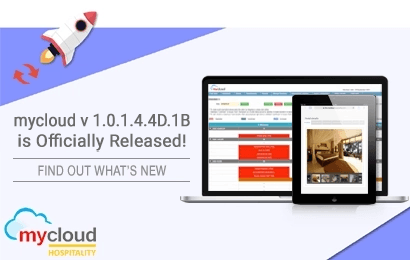The hospitality industry is experiencing rapid technological advancements, one of which is using voice assistants. This inclusion has changed how guests interact with their hotels and the care they receive. But what was once considered a fleeting trend is finally taking hold of the industry.
More hotels, guesthouses, and similar establishments are incorporating AI voice technology and adding their unique touch. This rapid acceptance begs the question, what does the future hold for voice assistants in hotel rooms? This blog post explores the current state and potential future of voice assistants in the hospitality industry. Keep reading to learn more about our recommended hospitality management system.
Understanding the Impact of AI Voice Technology in the Hotel
The hospitality industry is changing with the inclusion of AI voice technology. The technology leverages Natural Language Processing (NLP) to enhance guest interactions. The NLP-powered AI voice can listen, understand, and respond to voice commands. Moreover, the NLP can comprehend the tonality of the language and emotions. Here is the functionality that comes with voice assistants that use AI with NLP:
- Pick several languages and different dialects.
- Understand the intent and contexts buried in the voice commands.
- Offer personalized responses.
- Spot verbal cues during a speech
Voice assistants, or voice bots, are the latest AI technology that enables hotel guests to ask questions and get quick responses. The AI voice assistant personalizes each guest’s preferences and learns from experience. Guests can also use voice commands to control the room’s amenities, such as lighting, air conditioning, etc.
Overall, AI voice technology in the hotel industry ushers in a new era of convenience and comfort. It provides an improved performance when integrated into a hospitality management system. According to a 2019 Lodging Technology Study, “79% of hoteliers named voice-enabled technology as having the greatest potential soon.”
Advantages and Challenges of Voice Assistants in the Hospitality Industry
Like every innovation, there are two sides to the coin. The latest voice assistants have their benefits and potential challenges. Familiarizing with the advantages and challenges is crucial to integrating this voice assistant system. Here is an overview:
Advantages
The introduction of voice search technology in the hospitality industry has revolutionized how hotels operate and interact with guests.
● Voice search is transforming the booking process.
Voice search has streamlined the booking process for potential guests. Now, guests can book slots and use the hotel services with a few voice commands. This innovation has led to a more convenient booking process and enables faster booking rates. The voice assistant integrates with NLP-based chatbots and audio devices to monitor services and facilitate quick delivery. An example is Marriott International and Amazon Alexa, which can help guests book rooms. They only have to say, “Alexa, book a room for the Marriott hotel tonight.”
● Voice search creates a personalized experience.
AI voice assistants can customize an experience by accessing previous conversations and noting preferences. This technology means the voice assistant can be a helpful “friend.” The voice technology can suggest specific settings well-suited to each guest’s taste. It uses NLP-based chatbots and audio devices to ensure it meets the guest’s needs and shapes their experience accordingly. This way, every guest gets a unique experience without any hassle.
● Google Voice search result
A voice assistant with Google search capabilities can ensure a more eventful stay. They provide each guest with a unique itinerary using the information from the hotel and nearby attractions. Hence, guests can effectively plan their stay by conversing with the voice assistant in their rooms. Plus, they don’t have to worry about any judgemental reactions regardless of the activities they want to pursue.
● Optimizing operations and saving costs
Voice assistants can help automate routine tasks and optimize daily operations. For instance, the voice assistant can manage room service requests and check-ins/check-outs. When the voice assistant takes the reins, the operations are quick and streamlined. This helps cut labor costs and ensures staff can channel more energy to complex and demanding tasks. The voice technology is perfect for mid-sized hotels as it cuts labor costs and helps the hotel divert money.
Challenges
Implementing voice assistants in hotels comes with numerous advantages, but there are also challenges that must be addressed to ensure a smooth guest experience.
● Guest Privacy
One of the major concerns regarding voice assistants is they ensure privacy. Many guests fear that their conversations are being monitored. Plus, many guests might be reluctant to use the technology, thinking the information can leak and get into the wrong hands. Hence, the hotel has to establish more reliable and secure measures to ensure all the guest’s information is protected and safe from being misused and recorded.
● Data Protection
The voice assistant needs data to function. It accumulates data, which it later uses to provide the best care for the guest. One of the major challenges of this setup is ensuring the data collected is secure according to data protection regulations.
● Inaccurate Replies
Voice assistants could be better. These bots occasionally make mistakes and offer incorrect responses, which might lead guests to provide negative feedback and ruin their experience. However, hotels can handle this problem by opting for regular updates. The more updated versions are often less likely to make errors.
● Lack of Flexibility
The voice assistant might have issues accommodating many dialects and languages as different guests come in. To combat this problem, hotels and related centers can ensure that their voice bot can cater to a wider population. This way, the assistant is more inclusive.
Getting a smart Hotel PMS can help with the integration of a voice assistant into the hotel.
Which Hotels Should Get Voice Assistants?
Every hotel that can afford voice assistants should get them. Voice interactions are becoming commonplace. A recent study shows that more people are more likely to opt for voice interactions than ever, opening up many opportunities for hotels that offer voice assistants. That said, here are five reasons to get a voice assistant:
● Improved Guests Experience
Hotels can use voice assistants to improve guest experience. The voice bots can serve as a concierge. They would ensure guests can access their hotel amenities through simple voice commands. Guests can make restaurant reservations, book spa appointments, and even get an itinerary by simply talking to the voice bot.
● Streamline Operation
Voice AI technology streamlines operations that would normally require staff resources and time. An example is guests being able to check in and out with voice AI, eliminating the need for a front desk manager. This frees up time for the staff to do other things.
● Generate New Revenues
Voice AI technology can open up new revenue for hotels. The hoteliers can use the technology to upsell services. Guests can seamlessly order a meal from a nearby restaurant. Also, voice AI technology provides an avenue for advertisement for local businesses around.
● Hands-off Control
Guests can control hotel amenities with their voice. They can turn up or down the thermostat without leaving their beds.
Whether you are a family-friendly or luxurious hotel, a voice assistant is a great addition. The assistants are in place to improve the guest experience. Hence, regardless of the size or type of the hotel, it pays to own a functioning voice assistant system.
While voice assistants offer tremendous benefits, are today’s guests prepared to have AI help set an itinerary or order room service? We believe they are. For the most part, humans have had Alexa and related voice bots for years. While several guests might take a while to get used to the shift, most are ready. It might help if you employ the service of a smart hotel PMS in your hotel management system to ensure guest and voice bots get along.
How mycloud PMS Assists Hotels with Voice Assistants
mycloud PMS provides cloud-based solutions for independent units and hotel chains, including those with and without voice assistants. Users get features like back office, booking, guest experience, distribution, and various operational tools, which boost efficiency and ensure guest satisfaction.
mycloud PMS helps hoteliers offer better guest experience with 3rd party integrations such as dedicated phone call support, internet service interface, e-invoicing generations, kitchen display system, and payment gateway central reservation system. Also, mycloud PMS is an affordable option; here is a look at its prices. If integrated with voice assistants, guests are guaranteed a more streamlined experience.
Apart from that, mycloud PMS was awarded the Certificate of Excellence award for three consecutive years (2021, 2022, 2023), with 34% of the positive reviews coming from luxury hotels.
Conclusion
Hands-free control is becoming increasingly common in the hospitality sector. New research has shown that more guests would rather have their home service requests and suggestions handled by a voice bot. This article explores the potential benefits alongside challenges for a rounded perspective. That said, we recommend you integrate a Hospitality Management System like mycloud PMS. A voice assistant and an effective Hotel Management System offer increased cost savings and streamlined operations.










